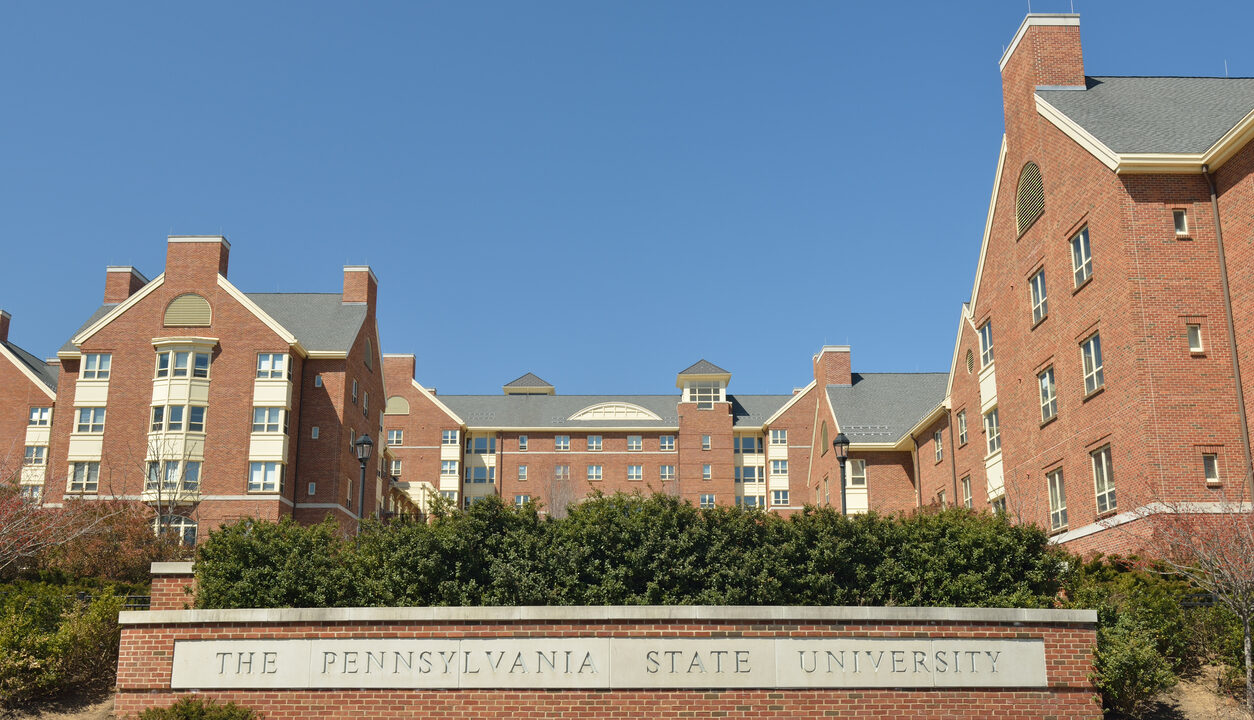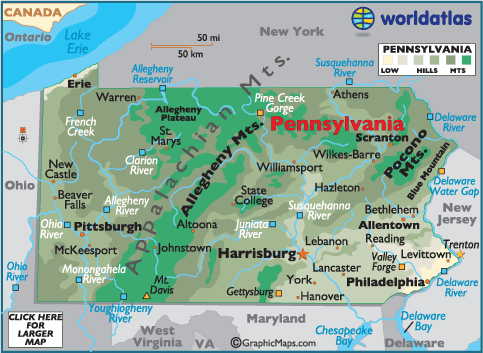Navigating Pennsylvania’s Higher Education Landscape: A Comprehensive Guide to Colleges and Universities
Related Articles: Navigating Pennsylvania’s Higher Education Landscape: A Comprehensive Guide to Colleges and Universities
Introduction
With great pleasure, we will explore the intriguing topic related to Navigating Pennsylvania’s Higher Education Landscape: A Comprehensive Guide to Colleges and Universities. Let’s weave interesting information and offer fresh perspectives to the readers.
Table of Content
Navigating Pennsylvania’s Higher Education Landscape: A Comprehensive Guide to Colleges and Universities

Pennsylvania, renowned for its rich history and diverse landscapes, is also a hub for higher education. With a multitude of colleges and universities scattered across the state, choosing the right institution for your academic journey can be a daunting task. This comprehensive guide aims to provide clarity and direction by exploring the vast landscape of Pennsylvania’s higher education system through an insightful map.
A Visual Guide to Pennsylvania’s Educational Institutions
A map of Pennsylvania colleges and universities serves as an invaluable tool for prospective students, their families, and even seasoned educators. It provides a visual representation of the state’s educational landscape, highlighting the geographical distribution of institutions and their diverse offerings. This visual aid facilitates informed decision-making by:
- Identifying Institutions within Reach: The map allows students to pinpoint institutions located within their desired geographic area, reducing travel time and costs.
- Understanding Geographic Concentration: Certain regions of Pennsylvania boast a higher concentration of colleges and universities, indicating a greater abundance of academic opportunities.
- Exploring Institutional Diversity: The map showcases the variety of institutions within Pennsylvania, ranging from small liberal arts colleges to large public universities, each offering unique academic strengths and environments.
- Visualizing Academic Networks: The map can highlight the interconnectedness of institutions through collaborations, partnerships, and student exchange programs, revealing opportunities for broader academic engagement.
Beyond the Map: A Deeper Dive into Pennsylvania’s Higher Education System
While the map provides a valuable visual overview, a comprehensive understanding of Pennsylvania’s higher education system requires delving deeper into its diverse offerings.
Public Universities: A Foundation of Access and Opportunity
Pennsylvania’s state-funded universities form the backbone of its higher education system. These institutions, renowned for their commitment to affordability and accessibility, cater to a wide range of academic interests. The Pennsylvania State System of Higher Education (PASSHE) comprises 14 universities across the state, offering a diverse array of undergraduate and graduate programs. The Pennsylvania State University (Penn State), a land-grant university with multiple campuses, stands as a flagship institution, known for its extensive research activities and diverse academic programs.
Private Colleges: Cultivating Individuality and Innovation
Pennsylvania boasts a vibrant network of private colleges, each with its unique character and academic strengths. These institutions, often smaller in size, prioritize individual attention and personalized learning experiences. From liberal arts colleges renowned for their rigorous academic programs to specialized institutions focused on specific fields like technology, business, or the arts, private colleges offer a diverse range of educational options.
Community Colleges: Pathways to Success
Community colleges play a vital role in Pennsylvania’s higher education landscape, providing accessible and affordable pathways to higher education. These institutions offer associate degrees, vocational training, and certificate programs, preparing students for entry-level positions or further academic pursuits. Their proximity to local communities makes them a convenient choice for students seeking to further their education while remaining close to home.
Specialized Institutions: Nurturing Expertise and Innovation
Pennsylvania’s higher education landscape is enriched by specialized institutions catering to specific fields of study. These institutions, often with a focus on professional training, research, or specific disciplines, offer students the opportunity to delve deeper into their chosen area of interest.
Key Factors to Consider When Choosing a College
Beyond the map’s visual representation, several key factors should guide students in selecting the right college for their needs:
- Academic Programs: Aligning academic interests with the institution’s program offerings is crucial. Students should research the specific majors, minors, and concentrations offered by each institution.
- Faculty Expertise: The quality of faculty plays a significant role in the learning experience. Students should explore faculty profiles, research interests, and teaching styles to ensure alignment with their academic goals.
- Campus Culture and Environment: The campus atmosphere, student life, and social activities contribute to the overall college experience. Students should visit campuses, engage with current students, and explore extracurricular opportunities.
- Location and Accessibility: The institution’s location, proximity to major cities, and transportation options are crucial considerations for students, especially those seeking internship or job opportunities.
- Cost and Financial Aid: Tuition fees, living expenses, and financial aid packages should be carefully evaluated to ensure affordability and accessibility.
FAQs about Pennsylvania Colleges and Universities
1. What are the top-ranked universities in Pennsylvania?
Pennsylvania boasts several highly ranked universities, including the University of Pennsylvania, Carnegie Mellon University, and the University of Pittsburgh. These institutions consistently rank among the top universities in the nation for their academic programs, research activities, and faculty expertise.
2. What are the best colleges for specific majors?
Pennsylvania’s higher education system offers a wide range of programs across diverse disciplines. Students seeking specific majors should research institutions known for their strengths in those fields. For example, the University of Pennsylvania is renowned for its business school, while Carnegie Mellon University excels in computer science and engineering.
3. What are the best colleges for students seeking a specific type of learning environment?
Pennsylvania’s diverse higher education landscape caters to various learning styles and preferences. Students seeking a traditional liberal arts education might consider institutions like Swarthmore College or Haverford College. Those interested in a more research-focused environment might explore universities like the University of Pennsylvania or Penn State.
4. What are the best colleges for students with specific financial needs?
Pennsylvania’s higher education system offers various financial aid options, including scholarships, grants, loans, and work-study programs. Students should research the financial aid policies of individual institutions and explore external scholarship opportunities.
5. How can I find information about specific colleges and universities?
Numerous resources can provide detailed information about Pennsylvania’s colleges and universities. Websites like College Board, US News & World Report, and Niche offer comprehensive rankings, program listings, and student reviews.
Tips for Choosing the Right College in Pennsylvania
- Start Research Early: Begin researching colleges and universities well in advance of application deadlines.
- Visit Campuses: Physical visits to campuses provide valuable insights into the learning environment and student life.
- Attend College Fairs: College fairs offer opportunities to interact with representatives from various institutions and gather information.
- Connect with Current Students: Reach out to current students for firsthand perspectives on their experiences.
- Seek Guidance from Counselors: Counselors at high schools and colleges can provide valuable guidance and support.
Conclusion: A Journey of Exploration and Discovery
Choosing the right college is a significant decision, and the map of Pennsylvania colleges and universities serves as a valuable starting point. By exploring the diverse offerings, understanding the key factors, and utilizing the resources available, students can navigate this exciting journey of exploration and discovery, ultimately finding the institution that best aligns with their academic aspirations and personal goals.








Closure
Thus, we hope this article has provided valuable insights into Navigating Pennsylvania’s Higher Education Landscape: A Comprehensive Guide to Colleges and Universities. We appreciate your attention to our article. See you in our next article!